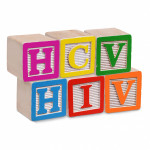A substantial proportion of people who inject drugs (PWID) who are coinfected with HIV and hepatitis C virus are willing to undergo direct-acting antiviral (DAA) treatment for HCV. This is according to a study of a population of such individuals in Vancouver, British Columbia.
Publishing their findings in HIV Medicine, researchers surveyed 418 HIV/HCV-coinfected PWID in Vancouver between June 2014 and May 2015 to determine their willingness to receive DAA treatment.
The median age of the group was 44 years, and 63 percent were male. Ninety-five percent were on antiretroviral treatment for HIV, and 67 percent had seen a hep C specialist during the previous six months. Fifty-three percent were enrolled in a methadone maintenance program (MMP), and 9 percent had ever been treated for hep C.
A total of 295 of the participants (71 percent) said they would be willing to receive DAA treatment. After adjusting the data for various factors, the researchers found that those enrolled in an MMP were 1.61-fold more likely to be willing to take DAAs than those who were not enrolled in such a program; those who had recently been assessed by an HCV specialist were 2.02-fold more likely to be willing than those who were not assessed; and those who perceived that hep C was affecting their health were 2.49-fold more likely to be willing than those who did not perceive this.
The study authors concluded that the finding about MMP’s association with willingness to undergo treatment suggests “that integrated models of HIV, HCV and addiction care should be explored as a way to address HCV-related morbidity and mortality among HIV/HCV-coinfected [PWID].”
To read the study abstract, click here.







Comments
Comments